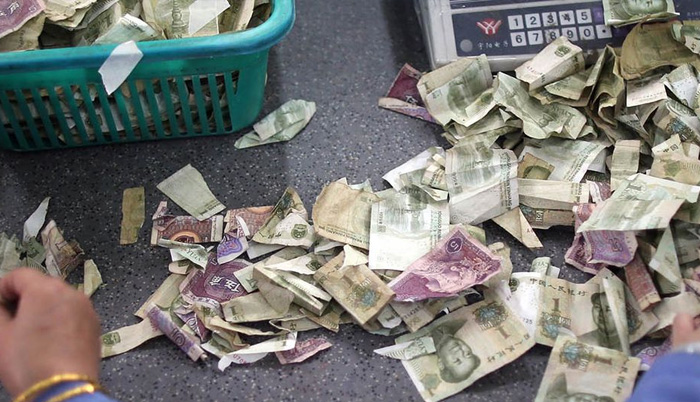![]() Home > World Business
Home > World Business
China Currency Manipulation Could Be Just What Trump Needs

Photographer: VCG via Getty Images
![]() March 7th, 2017 | 09:34 AM |
March 7th, 2017 | 09:34 AM | ![]() 1040 views
1040 views
CHINA
Top American economic officials, set to meet their Chinese counterparts next week at a Group of 20 gathering, may find one of their toughest challenges yet to hash out agreed language on foreign-exchange policy.
While President Donald Trump has repeatedly blasted Beijing for manipulating the yuan to make it cheaper, the People’s Bank of China has been intervening to cushion declines. That leaves American representatives at the G-20 finance chiefs’ gathering in Germany on March 17-18 needing to square past U.S. support for yuan liberalization with avoiding a continuous depreciation that would worsen the deficit with their top trade partner.
"It’s not about how we twist their arm" to support the yuan, said Patrick Chovanec, chief strategist at Silvercrest Asset Management in New York, who previously worked at Beijing’s Tsinghua University. "They’re doing it already." The question is how to communicate "that’s exactly what we want you to do," he said.
Both nations have repeatedly endorsed moves toward a market-set Chinese currency, with Premier Li Keqiang saying Sunday it will be "further liberalized." The problem is that the current market impetus is to weaken the yuan, a direction that carries the risk not only of exacerbating trade tensions but of undermining China by spurring outflows of capital. And its liberalization has had bumps: a mini-devaluation in August 2015 roiled global markets.
In the U.S., there’s been a mixed message. On the one hand, Treasury Secretary Steven Mnuchin has signaled no urgency to designate China a currency manipulator -- where manipulation is defined as giving an artificial trade boost. On the other, Trump has dubbed China a “grand champion” of such manipulation.
Meantime, a rebounding dollar is putting fresh pressure on the yuan, down 0.4 percent the past month. Bets on a March Federal Reserve interest-rate increase bring fresh focus to currency matters ahead of the G-20 confab, set to be Mnuchin’s debut on that circuit.
Given the U.S. interest in avoiding an excessively strong dollar as Trump tries to stoke American growth, some sort of deal -- at least with China -- can’t be ruled out, some analysts say.
FX Accord?
"The prospect of the U.S. and China agreeing on a deal on the dollar, as a part of the negotiations on how best to reshape trade, is a scenario I struggle to refute," said Stephen Jen, the London-based chief executive of hedge fund Eurizon SLJ Capital Ltd. and a past skeptic of any grand "Plaza Accord" type deals embracing a weaker greenback.
The G-20’s language on exchange rates already received a tweak last year, when China held the group’s rotating leadership and the finance chiefs omitted specific reference to calls for greater flexibility. A draft of the G-20 statement for next week’s gathering said officials “reaffirm our previous exchange-rate commitments,” though language on avoiding use of currencies for competitive purposes was omitted.
See here the evolution of language under the G-groups, first the G-7 industrial nations and later the G-20, which became the top body in 2009.
Prior to 2014, calls for a freer yuan were the effective equivalent of pressing for appreciation, with China enjoying bumper current-account surpluses before capital outflows swelled. With the situation now reversed, the message from developed nations, and particularly the U.S., has gotten more complicated.
“It is in both countries’ interest right now for China to try to avoid further depreciation,” said Brad Setser, a senior fellow at the Council on Foreign Relations in New York and a former U.S. Treasury Department official. "I don’t think China is ready" for an unfettered currency given the state of its domestic financial industry, he said.
Source:
courtesy of BLOOMBERG
by Justina Lee
If you have any stories or news that you would like to share with the global online community, please feel free to share it with us by contacting us directly at [email protected]